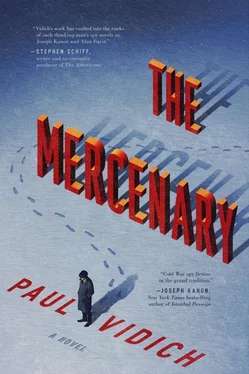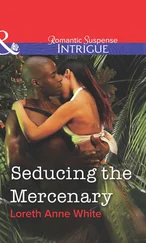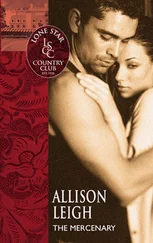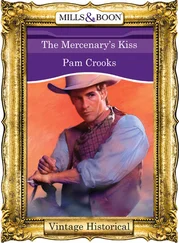“There is an emergency. An editor in London is still at his desk and asks to speak to me. An Englishman without a life now has a claim on mine.”
Garin and Natalya returned to the hall. She passed Posner’s empty seat on the way to her own, but seeing it empty, she changed her mind and sat next to Garin.
“He won’t be returning,” she whispered, placing her hand on his arm.
After a moment, he withdrew his arm to his lap, slumped in his chair, and fixed his eyes on the stage. He tried to ignore her.
“I think he planned it this way,” she whispered.
Garin made sure to look surprised.
* * *
THE METROPOL HOTEL was a short walk from the Bolshoi Theater, but Natalya and Garin were shivering when they spun through the hotel’s revolving doors on their way to the Metropol restaurant. The maître d’ stood at his station, a thin, short man with graying hair swept back and dark eyes. His severe face softened when he saw Natalya.
“Good to see you again, Natalya Seergeevna,” he said. “I have a nice table for you. Will Comrade Posner be joining you tonight?”
“No. Just us,” she said.
The maître d’ led them to a corner table set for three, and he crossed the knife at the third setting, signaling the change for the waiter. Silverware was perfectly aligned, and the linen napkins were folded to reveal the hotel’s embroidered insignia.
“Is this to your liking?” the maître d’ said.
“Yes. Perfect. Thank you.”
“You come here often?” Garin asked when the maître d’ left and she was unfolding her napkin.
“Not anymore. It’s too expensive. We would come after a performance to drink, and if someone managed to entice a patron to join, we got a meal out of him.” She nodded at the maître d’. “He sees everything but keeps his mouth shut. There—look.” She discreetly pointed across the room to a woman in a beaded silver dress who possessed unambiguous celebrity, collecting polite sideward glances from other diners. “She is Brodskey’s favorite now. A good dancer, ambitious, clever with her compliments, and very cold. An ice queen.” Natalya pointed to her ankle. “It was her boyfriend, but he wore a mask, and it was never confirmed.”
Two flutes of champagne arrived at the table on a silver tray. “Compliments of the maître d’,” the waiter announced.
Natalya started to sip but hesitated, and then raised her glass. “ Na Zdorovye. To your health.”
Garin threw back his drink and grabbed the escaping waiter’s arm. “And one vodka martini, straight up, no olives.”
“Two,” she said.
Dinner was ordered, wine selected, and the prompt arrival of the appetizers followed by entrées put them in a pleasant mood. She chose a red Burgundy from a good vintage that she knew was in the cellar, and they had taken the chef’s suggestions—he had the cranberry-braised goose with a tower of aromatic rice, and she had taken the steak pommes frites, eating the frites one at a time.
“You would wait hours for this beef in a store, but this is the Metropol. Posner has his sources, and he lets his palm be filled.”
With the food and the wine, their conversation turned from dull topics of war and corruption to lively gossip, and then to the differences between men and women—and specifically their different tastes in literature.
“I didn’t know you read novels,” she said, shocked. She was a fan of Wuthering Heights , which she’d read in London and loved for its audacity and Heathcliff’s cruelty. And then, in a flirtatious way, she said that men only liked books by other men—Hemingway, or Tolstoy, or the Englishman, le Carré. “In their books, young men never die of broken hearts. They die from knives and bullets. Which do you prefer?”
“Broken heart or bullets?”
“No!” She laughed. “Which authors?” She looked over her lipstick-smudged wineglass. Without waiting for an answer, she added, “Your question may be the better one. I can see from your hesitation you aren’t familiar with those authors. I guess you are the type who would prefer a bullet.” Her eyes had averted, but they settled on him. “I prefer the tragedy of love.”
“You’re a romantic,” he said. He swigged the dregs and licked the wineglass. “Drowning is low on my list of preferred ways to die.”
The check came in a red leather portfolio. She made no effort to pick it up. He let it sit between them, thinking that Posner would have paid, but now it was his to pay. He put cash from his wallet inside the portfolio.
“Thank you,” she said brusquely.
* * *
LIGHT SNOW HAD been falling earlier, but it had stopped when they stepped into the night. A brisk wind swept the boulevard and park across from the Metropol. They found themselves standing under the Karl Marx monument, a looming figure who commanded the square. A few Russians were out at that late hour, and a few foreigners from the hotel took advantage of the fresh snow to make snowballs, which they threw at each other playfully, laughing.
“What now?” she asked. “Have you had enough of me?” She formed a snowball in her hand.
“It’s late,” he said.
She threw it at him, striking his shoulder. “I know the time. You don’t have to tell. It makes you sound dull.”
He batted away a second snowball. He looked at her playfully mocking face and tried to look inside her mind.
“Maybe you prefer men?” she chided.
Garin’s eyes had drifted to the dark edges of the park, and to the night’s stillness, as he looked for surveillance. “Do I look reluctant?”
“Yes. Or disinterested.” Her third snowball hit him in the face, powdering his eyes. “You should be cautious. You’re an American in Moscow. It is past midnight. You might encounter a woman who wants to take you home.”
Garin saw an energy and vitality that were different from the abrupt, scolding woman he had come to know. “Yes, I might meet such a person.”
He balled snow and returned her volley, and an energetic snow fight ensued, each approaching the other, seeking playful advantage. They scooped handfuls of snow, hefting it at each other at close range, and she called him endearing obscenities, until they found themselves face-to-face. Their eyebrows were white, cheeks flushed, lips wet from melting snow, and she planted a kiss on his mouth.
She pulled away, slightly embarrassed. He stared at her, uncertain what to make of the advance. He remembered to smile, and then she leaned forward and put her lips on his again, indulging a moment of nervous excitement. They remained kissing in the open snow, and the surprise of the intimacy caught the attention of several hotel guests, who clapped like an audience.
Snow had begun to fall again, laying a false peace on their romance.
* * *
GARIN HOPPED OFF the No. 39 tram. He followed a few steps behind Natalya until she put her arm into his and pulled him forward along the quiet, tree-lined street of prewar apartment buildings. She dug for her keys at the entrance to a five-story building with a Beaux Arts façade. In the distance, he heard the tram’s bell clang. She inserted a key in the front door, and they passed through a small vestibule to a circular staircase that wound up toward a dark skylight.
“Shhh,” she whispered, finger on her lips. “Neighbors.”
They walked up the wide, curving marble steps, passing a baby stroller outside the second-floor apartment. His hand slid along the ornamental cast-iron railing, and his eyes took in the terra cotta fresco, wooden moldings, and ornate wall sconces that dimly illuminated their way.
“You live here?”
“What do you think?”
“How long?”
Читать дальше












